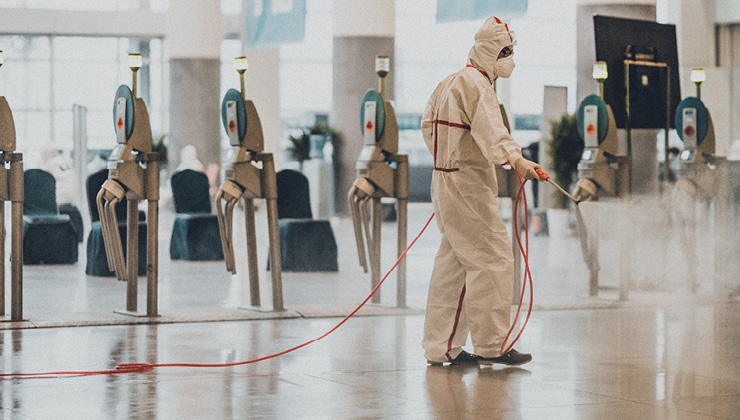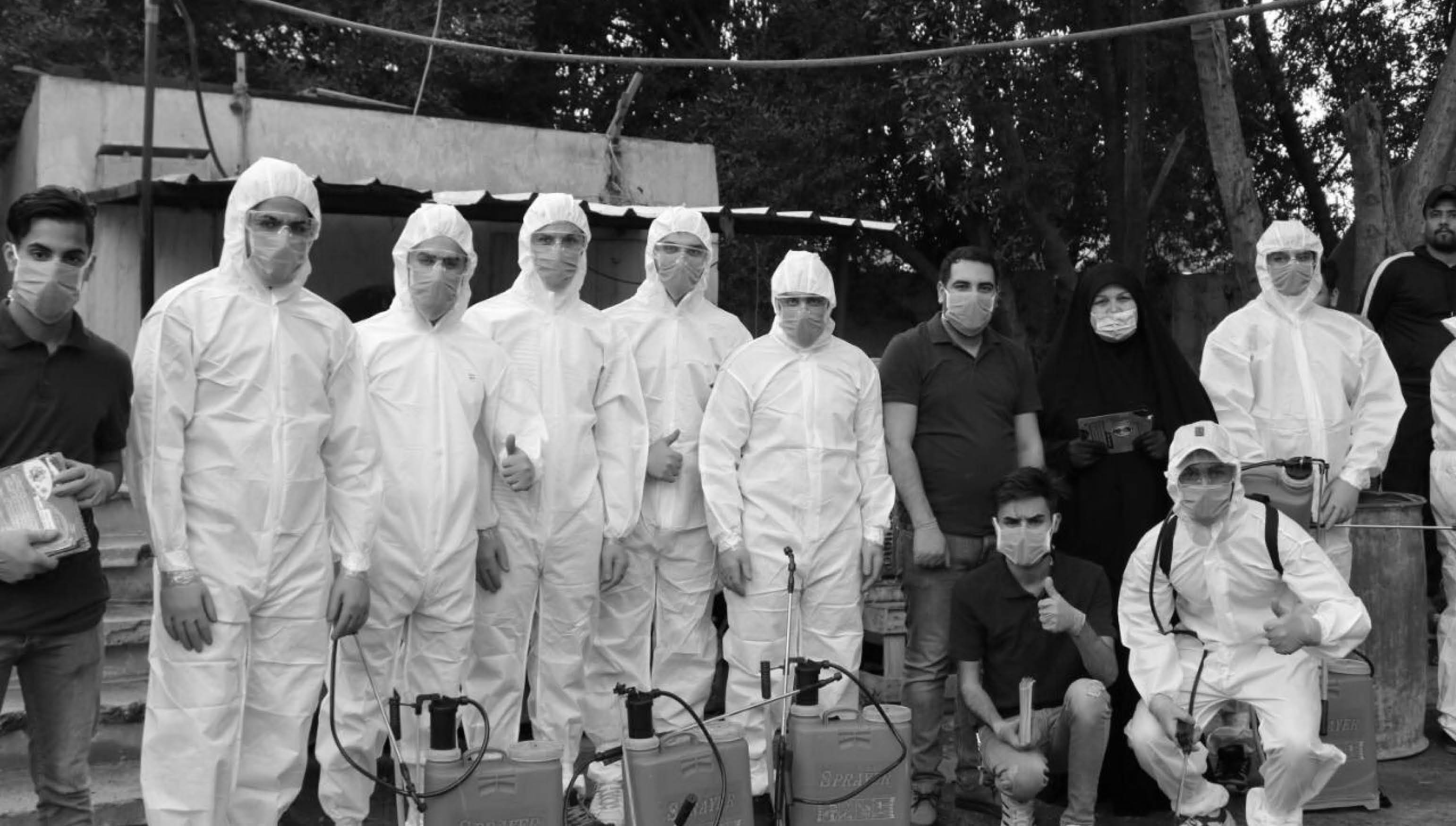Italy has been one of the worst hit countries in Europe by COVID-19. In a system where access to abortion services are already weak, and the conviction rates for violence against women are low, Rachele Marconi details how the pandemic and the current situation for Italian women is the result of structured economic and social inequalities already present in Italian society.
The COVID-19 crisis found many countries unprepared. The emergency requires immediate action to save infected people and to avoid and/or reduce its transmission. This is why many States faced with the prospect of their health systems being unable to cope with the exponential increase of cases, opted for extreme measures, such as the restriction of the freedom of movement. Quite soon, it became clear that, along with the spread of the virus we are about or, in certain cases, we are already experiencing an economic and social emergency which will have a much longer impact on our lives.
It is also becoming obvious that this situation does not affect everybody in the same way: the restrictive measures’ negative impact is proportional to the vulnerability of the person. Different criteria, such as age, poverty, and citizenship, point to the most vulnerable persons and these vulnerabilities usually interact and reinforce each other (intersectionality). Gender is one of the intersecting vulnerabilities with the restrictive measures negatively affecting women in regard to two major issues: domestic violence against women (VAW) and the right to access to sexual and reproductive health services. In this respect, the case of Italy, the country in the focus of the pandemic, is particularly relevant.
Violence against women
The situation of women in Italy was already critical before the spread of the COVID-19. As described by GREVIO in its report concerning the support for victims of sexual violence in Italy, published in January 2020, data reporting rates of sexual violence are very low, as well as the number of crimes of sexual violence reported. The Group of Experts finds the reason for such low reporting rates not because there are only a few cases of VAW, but rather in the institutional inadequate responses to VAW.
In other terms, women’s consciousness about the inefficiency and the weakness of the State response to VAW – especially due to the limited financing resources devoted to rape crisis and/or sexual violence referral centers for the protection and support to victims of VAW and due to the lack of solid guarantees for women denouncing VAW – leads them not to denounce the abuses to which they are subjected.
A source of alarm is also the gap between the number of reported crimes of sexual abuse against women and the number of convictions. For example, in 2016, the reported instances of sexual violence against women were 3,095 in the first nine months of the year, while the number of convictions for the entire year were 1,419.
The situation is likely to be aggravated in times of quarantine. As the WHO explained in its recent report, the distancing and isolating measures intensify the effects of the partners’ control and dominance over women. UN Secretary General António Guterres warned that we have seen a “horrifying global surge in domestic violence” in the context of the COVID-19 crisis and noted, in some countries, the number of women calling support services has doubled. It is clear that the quarantine prescribed for COVID-19 presents an additional risk factor, especially for women who were already subjected to physical and economic abuses. Evidence of increased numbers of VAW cases in Italy are not available yet, but there are good reasons to believe that, like the unreported COVID-19 cases, too many unidentified women experience violence in their everyday life.
Women’s access to abortion services
Domestic violence is not the only danger that Italian women have to face in this period of quarantine. The immense burden that the health system is facing has reduced access to abortion services. In Italy, abortion has been legal since Act No. 194/78 of May 1978, which states the right of women to voluntarily terminate their pregnancy. Nevertheless, in the Committee on the Elimination of All Forms of Discrimination Against Women’s (CEDAW) concluding observations on the seventh periodic report of Italy, the committee expressed its concern about “the limited availability and accessibility of abortion services owing to the significant number of health personnel conscientiously objecting to carrying out such operations and the lack of health centres providing these services, leading pregnant women to undergo unsafe abortions”. In a system where assistance to abortion is already weak, COVID-19 is an aggravating factor.
Nowadays, it is practically impossible to abort in Italy. Italian gynaecologists complain about the closure of gynaecology departments, the rejection of women asking for abortion and the cessation of free clinics work. What is more, some catholic movements are politicising this delicate situation in order to promote their anti-abortion position, asking the Health Ministry to suspend abortions as a non-essential treatment in times of COVID-19.
After this astonishing news, civil society started to mobilise. Many Italian associations are calling the Government for the adoption of urgent measures to guarantee every woman access to abortion services across the entire country. Among the requests, the petition asks for the reduction of hospitalisation phases and the admission of a totally remote procedure, monitored by telemedicine, a practice already in use in most European countries.
COVID-19 is not the cause of inequalities. Rather, the current situation of Italian women is the result of structural economic and social inequalities between women and men already present in our society. In other words, the pandemic is a litmus test for the level of gender equality achieved in our society and on the effectiveness of the measures and the mechanisms adopted so far to achieve a substantial equality between women and men.
At the same time, COVID-19 could become an opportunity to put gender equality as the first point on the political and institutional agenda and to re-think the best strategies to address these inequalities. The way in which Italy responds to VAW and abortion issues now will pave the way for the gender equality of tomorrow.
The views, thoughts and opinions expressed in this blog post are those of the author(s) only, and do not reflect LSE’s or those of the LSE Centre for Women, Peace and Security.
Photo by Jeffrey Grospe on Unsplash






Dear Rachele, I found this article very crucial regarding women’s rights and well written. The inequalities between genders and the difficulties that women face were already existing in society. However, by using the COVID-19 as a tool did not help the situation to go any better. Even though the world is in a pandemic with COVID-19, people should not forget about very important issues like women’s rights such as access to abortion. I did not know the situation in Italy, that is why I found your article very informative. We should continue choosing women’s rights to talk about in our articles to raise awareness during the pandemic. Hopefully, we will encounter better news regarding women’s rights in the following days!
Dear Selen,
thank you very much for your comment!
You have exactly got my point. Women’s rights are particularly at risk now, in a situation of crisis due to the Covid-19, because they have always been considered as second-rank rights. This is the reason why, in balancing women’s rights with other competing rights (such as the right to health), women’s rights usually appear less fundamental rights compared to the others, and they are the first rights to be limited.
In many States, Covid-19 has been used to justify limits on women’s rights. The pandemic is showing us how far from a substantial gender equality we are. Our role is to keep informed about violations of women’s rights and to be in the frontline for women’s rights, also writing about the issue and shaping a theoretical response to this issue.